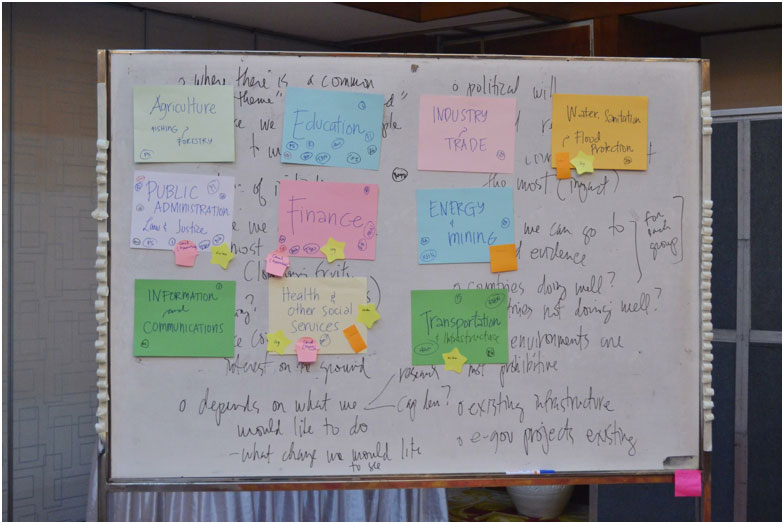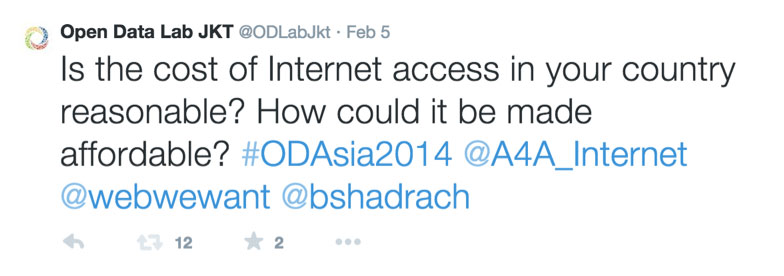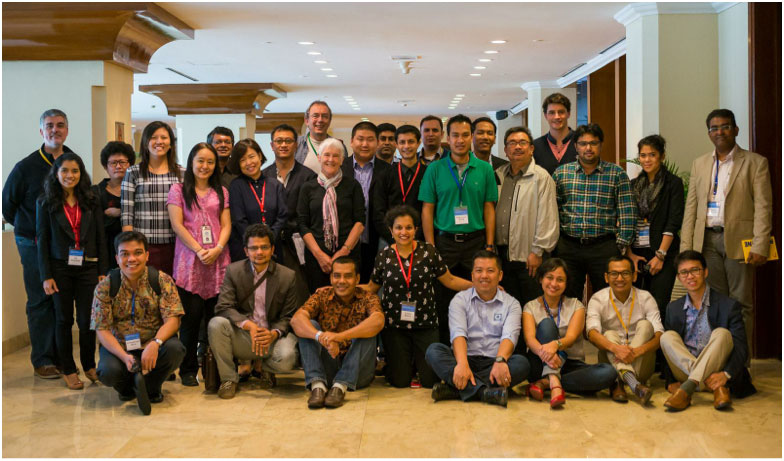The Regional Open Data Agenda-Setting workshop took place last 4–6 February 2015 in Jakarta, Indonesia and was hosted by the Web Foundation’s Open Data Lab Jakarta. To know more about the event, what took place leading to it and how the kick-off was, read the first part of our post.
Continuing from there, here are the activities and outcomes from the second and final days of the workshop.
Day 2: Mission Statements, Priority Sectors, Boundary Partners and Strategy Map

Keeping the momentum and excitement, the second day of the workshop included sessions that defined mission statements and priority sectors, based on five major considerations: need, governance context, resources, objectives and evidence. These sectors are public administration (inclusive of law and justice), health and other social services, transport, infrastructures and energy and mining.
To expound on these sectors, boundary partners – government, intermediaries and the private sector, and citizens – and milestones for each, leading to 2020, were also determined in the succeeding sessions.
This was followed by a fringe session from the Alliance for Affordable Internet, which discussed the vital role of affordable access to the Internet for open data to work.

The final session of the day tackled regional research strategies. Here, expert experiences, knowledge and practices were exchanged by the group on how to ask the right research questions, how to decide on the methods of finding answers, and how to filter information.
Resulting from this, the participants identified key strategies for achieving the ideal states of open data, which positively coincided with our Open Data Labs’ own approach:
- Conduct research to understand key problems and issues surrounding open data to form and inform initiatives;
- Develop and test replicable models for ensuring open data provision and use;
- Build the capacity of both governments and users (intermediaries, private sector and citizens) to unlock the potential of open data, including access to technology and other needed resources;
- Implement collaborative projects among key stakeholders.
Launch of the Open Data Lab Jakarta
Finally, the day was capped off with over 130 guests enjoying the evening and celebrating with us the official launch of the Open Data Lab Jakarta. Traditional Indonesian food, Javanese and Balinese dances and acoustic music were only amongst some of the entertainment for the night. Presentations and concrete stories on the states and uses of open data in the South and Southeast Asia region were also given by a selection of our guests. Read more about this event here.
Day 3: Wrapping it all up with Commitments and Responsibilities
An exchange of commitments and responsibilities ended the workshop in high spirit. Herein, participants vocalised actions and activities that they would undertake to achieve the envisioned ideal state of open data in the region.

Albeit being a taxing three days, the participants shared their positive sentiments with having gained invaluable insights to take back, and being able to build a network with other practitioners in the region. These together will help support open data movements in their respective sectors and countries. Open Data Task Force PH representative Ivy Ong, noted:
“The workshop was mind-blowing in the sense of you (experiencing) this rich amount of expertise and experience in one room; (it) was a really good learning experience. Just the process of…how other practitioners are doing it in their country, what the challenges are, and how we can go about moving in a similar direction is very fruitful in and of itself.”
The level and quality of knowledge, expertise, and actionable inputs shared will definitely play a large role in shaping the agenda for open data research and development in the region. And the outputs of the workshop will create moulds for better open data initiatives and help align the various efforts leading to a more coordinated regional agenda for open data.
Leave a Reply